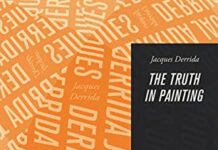
Ebook Info
- Published: 2011
- Number of pages: 96 pages
- Format: PDF
- File Size: 2.39 MB
- Authors: Jacques Derrida
Description
With death looming, Jacques Derrida, the world’s most famous philosopher, known as the father of “deconstruction,” sat down with journalist Jean Birnbaum of the French daily Le Monde. They revisited his life’s work and his impending death in a long, surprisingly accessible, and moving final interview. Sometimes called “obscure” and branded “abstruse” by his critics, the Derrida found in this book is open and engaging, reflecting on a long career challenging important tenets of European philosophy from Plato to Marx. The contemporary meaning of Derrida’s work is also examined, including a discussion of his many political activities. But, as Derrida says, “To philosophize is to learn to die”; as such, this philosophical discussion turns to the realities of his imminent death–including life with a fatal cancer. In the end, this interview remains a touching final look at a long and distinguished career.
User’s Reviews
Editorial Reviews: Review “No thinker in the last 100 years had a greater impact than he did on people in more fields and different disciplines…. No thinker has been more deeply misunderstood.”—Mark C. Taylor, New York Times About the Author The late Jacques Derrida was Director of Studies at the Ecole des Hautes Etudes en Sciences Sociales and Professor of Humanities at the University of California, Irvine. Among the most recent of his many books translated into English are Eyes of the University, Negotiations, Who’s Afraid of Philosophy? and Rogues: Two Essays on Reason.
Reviews from Amazon users which were colected at the time this book was published on the website:
⭐No one can witness their own inclusion into “The Last Interview” series, as its entry criteria remains rather ominous. Yet those left behind can retroactively reflect on, and learn from, what ended up being a particular person’s final public statement. One of the series’ first installments, called “Learning to Live Finally,” featured French philosopher Jacques Derrida. In Derrida’s case, his final interview, published in “Le Monde” magazine in August of 2004, appeared only a few months before his death. A French language book version appeared in 2005 and the first English translation, the one included in “The Last Interview Series,” followed in 2007. The book never mentions Derrida’s diagnosis of pancreatic cancer in 2003, nor that he died during surgery. He only refers to himself as “very seriously ill.” Unlike some other subjects in the series, Derrida probably knew that the “Le Monde” piece would likely serve as a sort of self-composed public epitaph. To support this, the book’s short introduction, written by his final interviewer, tells of Derrida rereading every word, chiding any attempted omissions and finally referring to the piece as “an obituary.”This “elephant in the room” emerges in the interview’s first pages. After summarizing Derrida’s very busy preceding year, including global conferences, a second documentary on his life and work and numerous tributes in print, Derrida affirms “if you don’t mind, we are not here to issue a medical report – whether public or secret.” Details of his health thereafter only loom in the background, but mortality almost immediately comes to the foreground thematically. Quoting the line “I would like to learn to live finally” from “Specters of Marx,” the interviewer asks “more than ten years later, where are you today with regard to this desire to ‘know how to live?'” In French, the line “je vais t’apprendre à vivre” can connote the more aggressive “teaching someone a lesson” or “whipping someone into shape.” It can also suggest the perennial parental entreaty “when will you take responsibility for your life?” Can one learn such a thing? Can one affirm one’s own life? Derrida claims that he never “learned how to live,” by which he means accepting mortality without salvation or redemption. He continues, “learning to live should mean learning to die” as “we are all survivors who have been given a temporary reprieve.” He also says that the world deprives many of a “life worthy of being lived.”Looking back, he also considers himself a “survivor” of the 1960s generation, with its “ethos that does not let itself be scared off by what public opinion, the media, or the phantom of an intimidating readership might pressure one to simplify or repress.” He hopes for a diversification in the thinking of “media intellectuals” and their mass publications that do not “form their readers,” but instead “presume an already programmed reader.” Reflecting on “the death of the author,” Derrida likens publishing to expropriation of oneself without knowing who will take up a body of work, even asking “will there even be any heirs?” A “double feeling” haunts him, one that makes him believe that many of his readers remain yet unborn but, simultaneously, that his works will die forever with him and “there will be nothing left.” Many authors have spoken about their works taking on lives of their own, even, in the worst cases, lives far from what their writers intended. Apart from such risks, many authors, or at least those harboring illusions of immortality or of “leaving a piece of themselves behind,” probably mourn their works’ inevitable oblivion. Just as one can lose control over interpretations of one’s own work, one will ultimately and completely lose control over one’s own legacy. Someone who inspired as much controversy as Derrida did probably has good reasons to feel both hopeful and anxious about whether future generations will embrace, ignore or abhor his ideas.As to his legacy, he would like “to leave traces in the history of the French language – that’s what interests me.” His love of French derives from his heritage as a French Jew born in Algeria and that French remains the only language he really mastered and that he can “take responsibility for.” Though he retains deep suspicions around using the word “we,” he can nonetheless speak of “we Jews” or “we Europeans.” As to Europe, he hopes that it will channel its collective guilt toward keeping “American hegemony” and “Arab-Islamic theocratism” in check and sow a new “alter-globalist politics.” A long interlude argues that marriage has its roots in religion and not in secularism, so governments should treat it as such and not allow religion to influence the banning of non-traditional unions. Then Derrida mentions one of the words most associated with his name: deconstruction. Though not discussed in any detail or depth, this short interview doesn’t serve as an adequate introduction to his thought, he says that it remains a “product of Europe” and provides “a chance for a future in European self-critique.”The original 2004 “Le Monde” interview carried the title “Je suis en guerre contre moi-même” or “I am at War with Myself.” By this he means the “contradictory things that are, we might say, in real tension” in his body of work. He likens this war to life itself and claims “I will find peace only in eternal rest,” but the contradiction “is what keeps me alive, and makes me ask precisely the question you recalled earlier, ‘how does one learn to live?'” Such questions will hopefully receive “uncritically open” reflection and discussion in “the new university” that will hinder no inquiries. When challenged on how he would respond to holocaust deniers, Derrida counters that “one has the right to ask all questions,” but when answers involve falsehoods or outright shoddy research, they must get reprimanded. As such, he calls denier Robert Faurisson “incompetent” and “harmful.”Some critics depicted, or perhaps misunderstood, Derrida as attempting to overturn or undermine European culture, tradition and thinking. Perhaps in response, he claims that he “does not propose jettisoning Greek philosophy” and that “I have never turned my back on either philosophy or Europe.” Most of all, “deconstruction is always on the side of the yes, on the side of the affirmation of life.” Toward the end of the interview he likens his entire thought as an affirmation of life and adds “I am never more haunted by the necessity of dying than in moments of happiness and joy.” Not only that, he feels blessed to have enjoyed even the unhappy events of his life. Though he also of course cherishes happy times, they come with the vicious bite of leading him more toward reflections on his impending passing. The interview ends with a nebulous ellipse, evoking either an optimistic “more to come,” an omission or perhaps an interminable mystery.This very short interview reveals the unquestionable tension of Derrida’s final days. He admits to never having “learned to live finally” and his talk of leaving life feels tentative, unsure, cautious and hesitant. Obviously, all of that remains completely understandable given his circumstances. The saying attributed to Chinese philosopher Zhaungzu that “maybe death will be so great we’ll regret having ever lived” could end up true, but evidence for any kind of salvation in a luxurious afterlife still seems indelibly tied to human wish fulfillment. Admittedly, the nature of the universe or of consciousness may contain shocking and yet unknown surprises, but, barring such knowledge, the human condition before birth looks very similar to that after death. Perhaps nothing but oblivion awaits? If so, the only consolation for eternal oblivion is that it arguably beats eternal damnation. As evidenced in “Learning to Live Finally,” even someone of Derrida’s intellectual stature struggled with the agonizing absurdity and frustration of unavoidable nonexistence. In the end, though, he seems to accept the intertwining of death and life when he says “to feel joy and to weep over the death that awaits are for me the same thing.” People of all classes, backgrounds, ethnicities and situations will face similar questions, doubts and grief, but “Learning to Live Finally” points toward acceptance as possibly the only remedy. Though one can probably never completely prepare for such things, “The Last Interview” series allows a rare glimpse into the psyches of people facing such unanswerable quandaries. For this alone, the Derrida volume remains essential reading.
⭐I’m not a big enthusiast of Derrida. Much like those who like to hear themselves talk, I have always come away from Derrida convinced he was someone who liked to watch himself write.This book is anything but that, and certainly whether you are George Harrison or Jean Paul Sartre, death has a way of sharpening one’s focus and editing the superfluous. Heidegger would have simply nodded and said, yes, being-toward-death does that. In the case of Derrida, the infatuation with his own opinions is dismissed and he gets down to what’s real here. And to that extent this is indeed a moving, chilling and unblinkingly honest coming to terms.You can draw your own conclusions when the book ends, but it reminded me of Sartre’s HOPE NOW, an astounding last interview with Bernard Henri-Levy who was inisistent on getting Sartre to cop to Messianic Judaism and in his obsessive drive missed what Sartre was saying at the end of his life: that in what he had seen in the course of the human struggle, there was every reason for hope now. Derrida was always more positive than J-P S, and he seems intent on delivering a valedictory for the converted and the curious that by thinking, we approach the being of freedom.A wonderful way to say good-bye…
⭐Learning to live,”structurally” is short in pages – like life on earth- but the book is intense, and rich in content. The book starts with the perennial definition ” what is life” (qu’est ce que c’est la vie)? Answer: To learn to live is to learn to die. This statement seems to cut short the discussion, but the description of the “thing” after life is better to be described in French: ” survie”. In French the term can be divided in two parts: sur and vie (life). “Sur” can be translated into above, beyond, in… depending on the context. He choosed “beyond”. Apres la vie il y a une vie au-dessus de la vie presente- there is a ” beyond life” after the present life”. “Sur” also carries the meaning to overcome. For those left behind obviously they have to deal with the “civil” procedures pertaining to the deceased: assets,wills, debt and money( if you are on the list of the top 100 of Forbes) and, those things are not easy to deal with since the survivors have to carry also the emotional burden of the event. Not a very civilized way to deal with somebody who just lost a loved one. But that’s only the beginning of the message. Read the book and make your own opinion.
⭐There are memorable insights into the man Jacques Derrida in this short book. Removed from the rarefied philosophical air of his works, we find him at home with his main support, his wife Marguerite – and an open suitcase – as he faces death. The theme of survival and self-preservation is uppermost in his thoughts and that the traces he has left along the way signify both his impending death and the hope these traces survive him. He is aware of the inbuilt contradictions in his thought and writing `I am at war with myself,’ he says and makes no apology – `that is life.’ The only disappointing aspect for me is his articulation of a utopian European dream, emerging from political dislocation and crisis, but this does not detract from a thoroughly worthwhile read. Along the way Derrida leads you into some of his texts and the chronologically arranged Selected Bibliography at the end is most useful.
⭐great fast services
⭐
Keywords
Free Download Learning to Live Finally: The Last Interview (The Last Interview Series) in PDF format
Learning to Live Finally: The Last Interview (The Last Interview Series) PDF Free Download
Download Learning to Live Finally: The Last Interview (The Last Interview Series) 2011 PDF Free
Learning to Live Finally: The Last Interview (The Last Interview Series) 2011 PDF Free Download
Download Learning to Live Finally: The Last Interview (The Last Interview Series) PDF
Free Download Ebook Learning to Live Finally: The Last Interview (The Last Interview Series)





